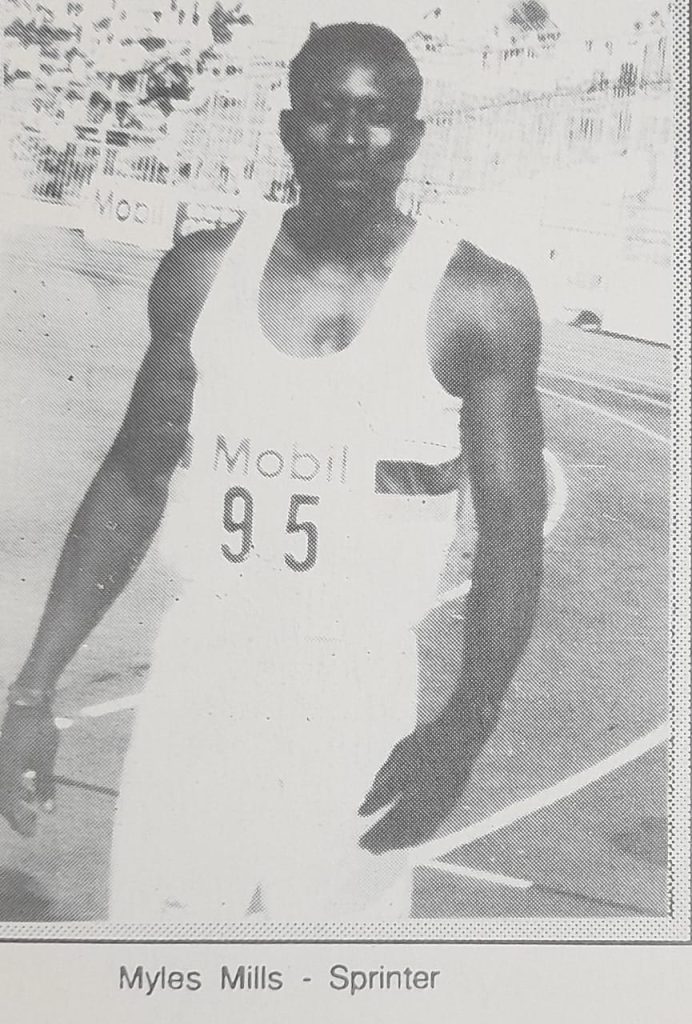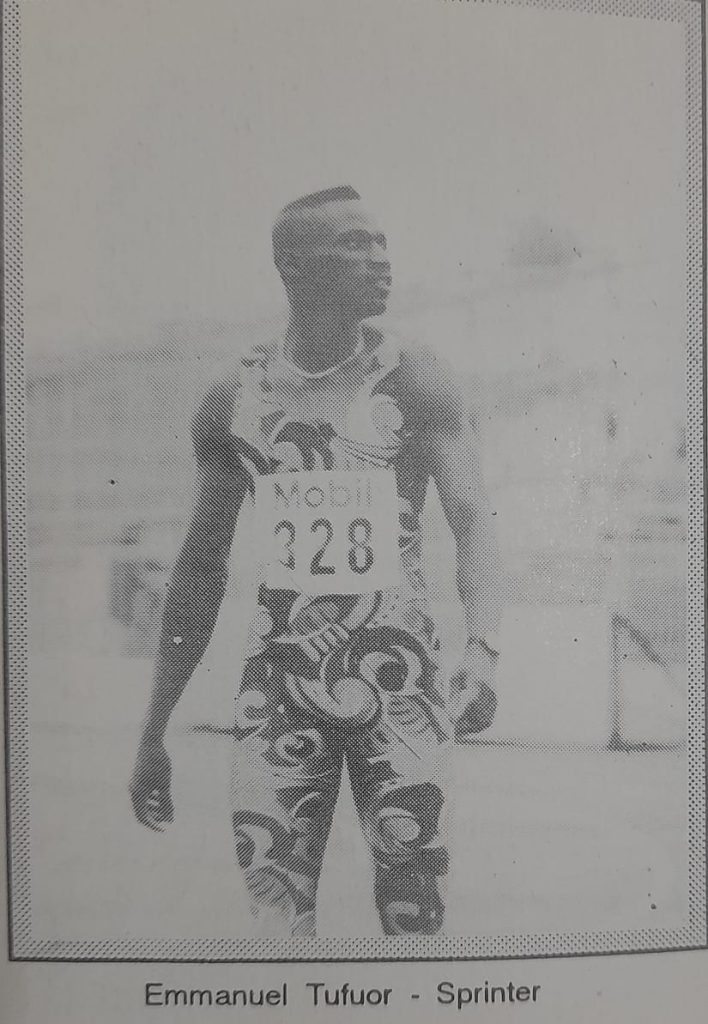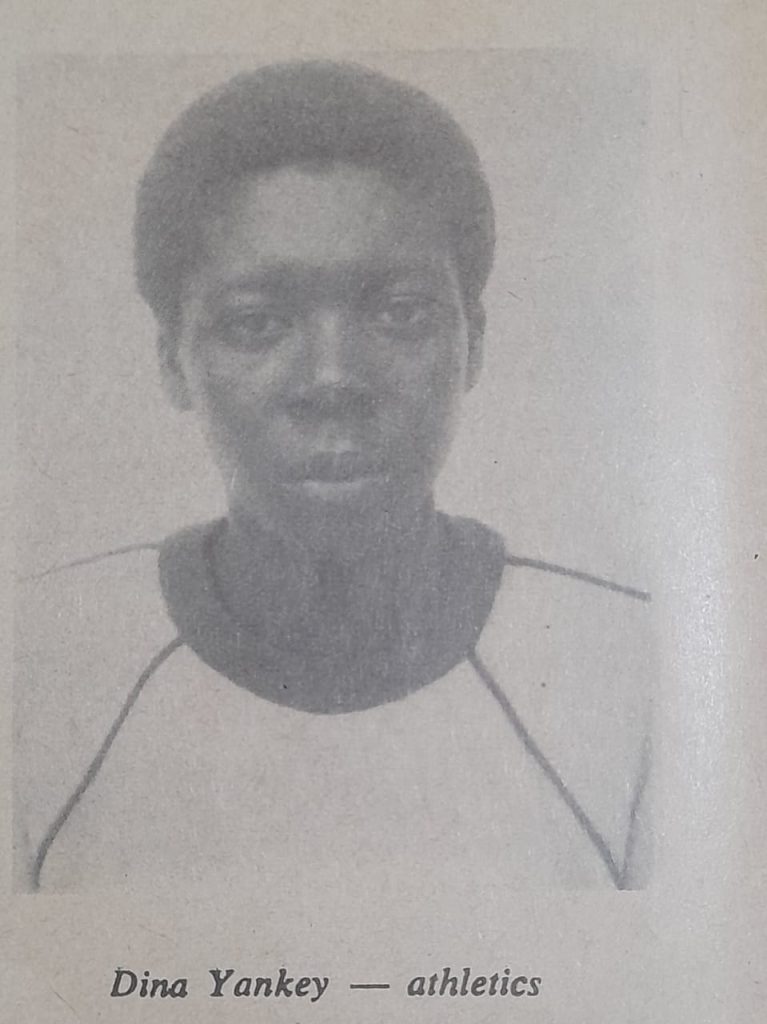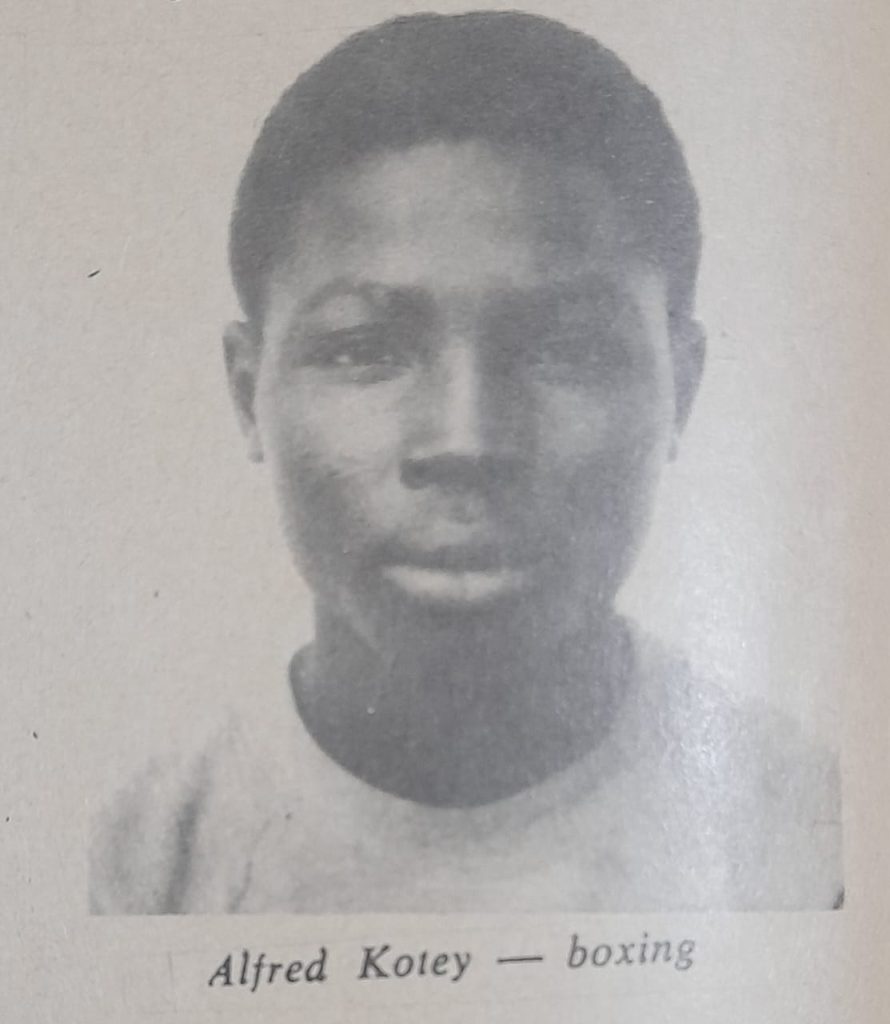Ghana and the Seoul 1988 Olympic Games
This was the first “full scale,” Olympics since the past three boycott-prone Olympiads of Montreal 1976, Moscow 1980 and Angeles 1984. A record 159 countries were in the South Korean capital for the biggest sports festival on the planet.
Ghana entered three disciplines, boxing, athletics and table tennis. Even though a couple of the boxers and athletes showed much improvement their performances were not good enough to win any medals.
The four-man boxing squad of flyweight Alfred Kotey, lightweight Ike Quartey, Light welterweight Alfred Ankamah (captain) and Light middleweight
Emmanuel Quaye. All the boxers had an early boost when all of them luckily drew a bye in the first round.
Alfred Ankamah inspired his colleagues with one of the fastest knockouts in the tournament when he stopped Jay Smbeye of Malawi in 1 min 15 secs in the first round. A terrific right caught the Malawian flush on the jaw and he dropped heavily on his back to be counted out.
Flyweight Alfred Kotey followed suit with another first round win for Ghana over Husain Almuntari of Kuwait. The referee stepped in at 2mins 43secs to save the clearly outclassed Kuwaiti from undue punishment.
Lightweight Ike Quartey also won with unanimous decision over Saizozena of Dominican Republic. Ike did well but his stamina appeared suspect in the closing stages of the fight.




Lightmiddleweight Emmanuel Quaye, lost to Lauren’s Mercando of Equador. Quaye was just too inexperienced and not even the fact that his opponent was given a public warning in the second round for persistently hitting with open gloves, could make any difference. Quaye was given a standing count as round three began and it was obvious that he couldn’t last. It was not surprising therefore when he was decked just before the end of the round to be counted out.
In his second fight, Flyweight Alfred Kotey produced a blistering double fisted attack to score a unanimous points victory against Tanzanian Benjamin Mwangath. He dominated the Tanzanian in the first two rounds but the Tanzanian came out strongly in the third round. In hot exchanges late in the round, the Tanzanian opened a cut on the left cheek of Kotey but Kotey had done enough to get the verdict.
Lightweight Ike Quartey lost his second fight to Australia’s Grabane Chevey in a close contest. The first round was even and Ike won the second round. The third was also quite close but when the scores were called, the Australian had been made winner by all the five officials. Most Journalists were of the opinion that, perhaps the aggressive brawling tactics of the Australian might have bamboozled the judges. Ike Quartey obviously felt cheated and he dramatically staged a mini protest by refusing to leave the ring for a couple of minutes. He eventually left after bowing out amidst applause from the crowd.
Lightwelterweight Alfred Ankamah also lost his second fight against American Kenneth Gould. The American, stronger and much more muscular, was the better boxer Right from round one, he established his superiority proving too elusive for Ankamah to catch with any of his usual bombs. Ankamah was however courageous and determined to fight but he never really found an antidote to Gould’s tactics. The unanimous verdict was never in dispute.
The biggest setback to the boxing team was when medal hopeful Alfred Kotey was declared unfit at the ringside moments before his quarter final bout against Mexican Gonzales. The medical commission of AIBA (International Amateur Boxing Association) ruled that a cut which Kotey had sustained in the previous fight against Tanzanian Benjamin Mwangath and which had been stitched, was unsafe for the Ghanaian to fight. All attempts by the Ghanaian officials to have the ruling reversed failed. Team physician Dr Forjour was particularly a sad person for sanctioning the stitching of Kotey’s cut.
In athletics, sprinter Leo Myles Mills emerged the most outstanding Ghanaian athlete. He won both the first and second round heats in the 100 metres in 10.33 secs and 10.12 secs to reach the semi-finals.
Team officials believed that the draw of lanes in the semis which put Myles Mills next to the indomitable Carl Lewis of the US, would inspire him. Instead he appeared overawed and tensed up and was surprisingly left behind on the starting blocks as the gun went. In the event Myles Mills finished last in the semis with a time of 10.43 secs having clocked 10 33 secs and 10.21 secs earlier in the heats.
Again in the 200 metres Myles Mills qualified for the second round heats by placing 4th behind Italy’s Stefano Tolli, Carl Lewis and Nigeria’s Olapide Adenikan in 21.04 secs. Then in the quarter finals he finished 6th but didn’t qualify for the semi-finals because his time of 20.95 secs was a shade slower than Belgium’s Patrick Stephens.
The men’s 100×4 relay quartet of Eric Akogyeram, Nelson Boateng, Salam Gariba and Myles Mills qualified for the semis finishing third behind the Soviet Union and West Germany in 39.13 secs, the 6th fastest of the 14 qualifiers.
The Ghanaians were hopeful of a medal following the disqualification of the strong US team for changing the last baton in the wrong zone whilst winning their first round heats. Poor baton changing however cost Ghana and the team placed fifth in the semis in 39. 46 secs earning an overall 12th position in the rankings. All the first eight clocked under 39 secs.
Triple jumper Francis Dodoo failed to make it to the second round. He managed a poor 16.88 metres after four attempts and thus failed to qualify for the second round.
In the women’s division top star Diana Yankey didn’t have much of a chance in the sprints. Running against the likes of super star Florence Griffiths Joyner the Olympic and world record holder and Evelyn Ashford both of the US. However, she managed to qualify for the second heats where she was eliminated by placing last in 11.64 secs. Also in the women’s 100m metres hurdles Diana Yankey failed to qualify for the second round when she placed 4th in her heats. Her time of 13. 64 secs put her in the 24th ranking out of 33 starters and was not good enough for her to advance.
In the women’s long jump, 16-year-old US-based student Juliana Yendork finished 27th among 29 competitors.
She fell at the end of the first round but one expected Yendork gaining inspiration having compelled against top class athletes like Olympic record holder Jackie Joyner Kersey.
The women’s sprints relay quartet of Veronica Bawuah, Diana Yankey, Mercy Addy and Marha Appiah crashed out in the semis after running the 13th fastest time of 44.12 secs in the quarter finals.
In table tennis young Patricia Akosua Ofei lost all her four matches to place 6th and last in her group Patricia lost 3-1 to Australian Kerry Tapier 21-19, 21-12, 20-22, 21-16. Lost 3-1 to Wai Cheng Lau of Malaysia,18-21, 21-18, 21-17, 21-17 beaten 3-1 by Ka Sha Kok of Hong Kong 21-18, 18-21, 21-17, 21-17 and then 3-0 to Kiyomib Ishida of Japan 20-22,16-21,15-21.
For young Akos, the experience gained by facing top class opposition from China, Malaysia and Japan proved invaluable. She rose to become a national star.
Next episode 1992 Barcelona Olympics.
Cheers everybody and keep loving sports.



